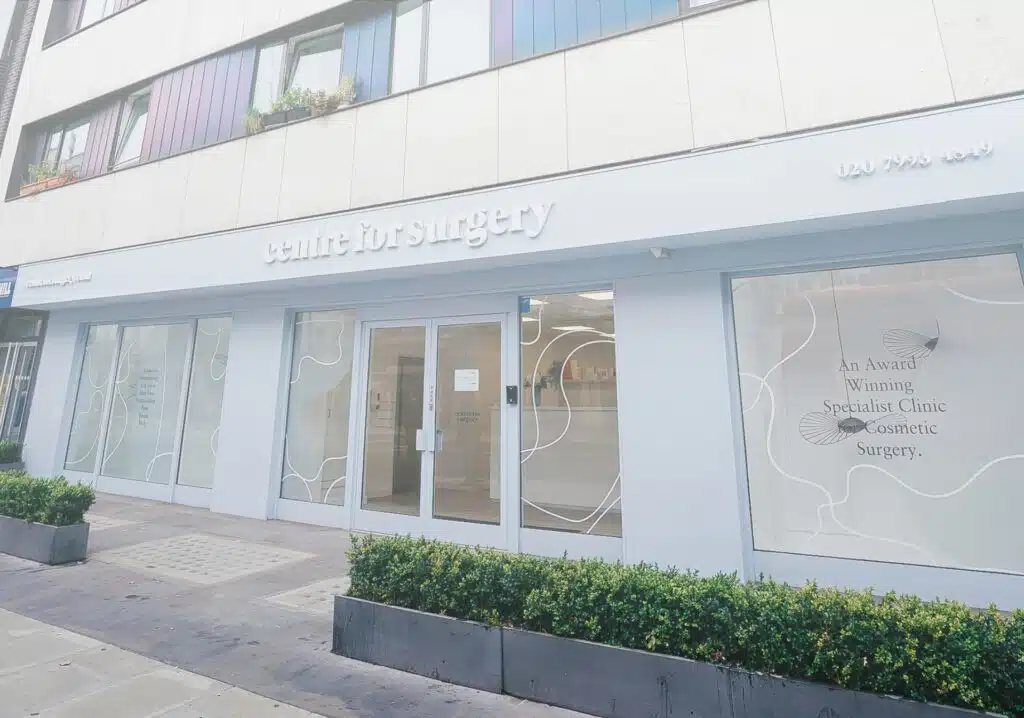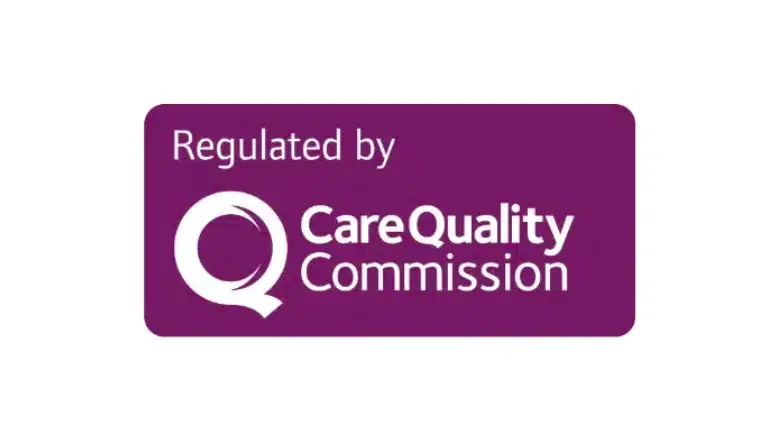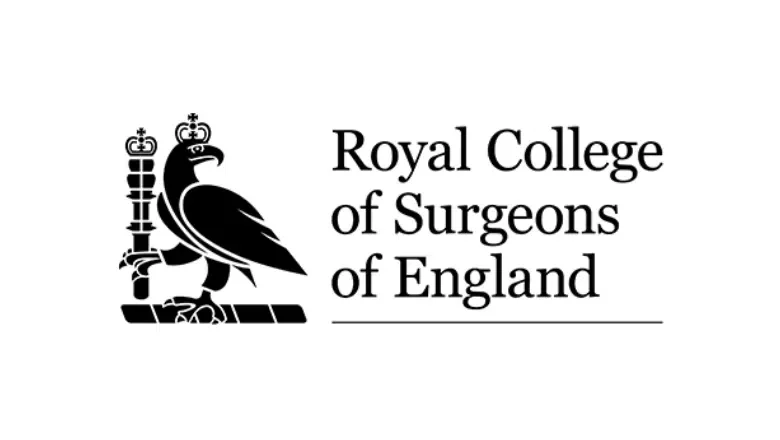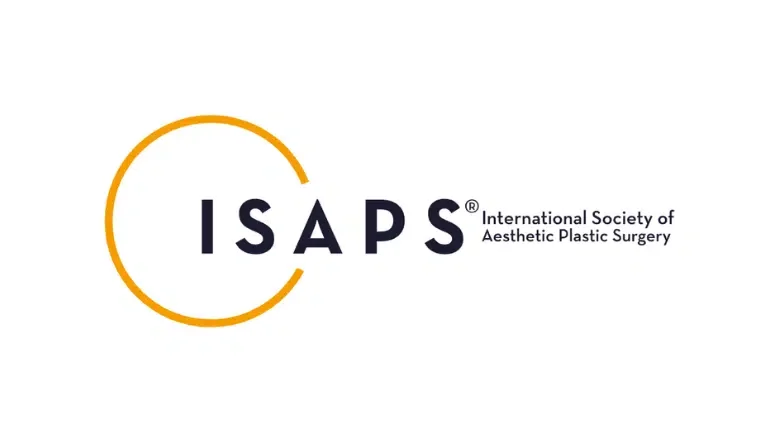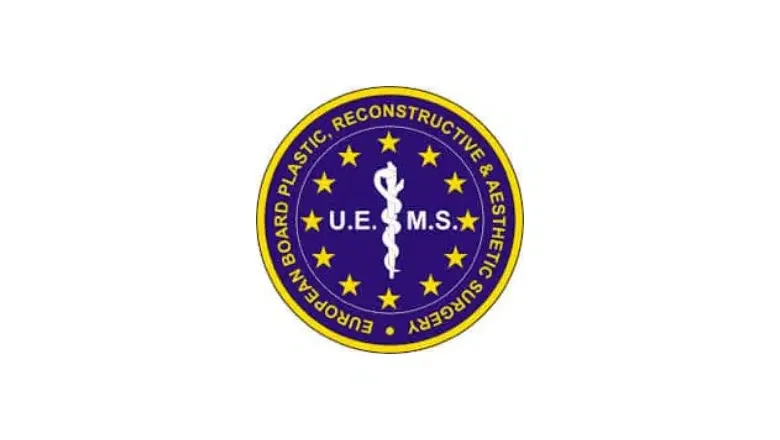Mini Neck Lift London
A mini neck lift, also known as a short scar neck lift, is a cosmetic surgical procedure that focuses on improving the appearance of the neck by addressing excess skin and fat in the lower face and neck area. It is less extensive than a full neck lift and involves smaller incisions, making it a less invasive and less time-consuming procedure. Centre for Surgery in London is considered one of the top plastic surgery clinics in London for cosmetic facial surgery.
RELATED: Neck Lift FAQs – Q&As about Neck Lift Surgery
During a mini neck lift, the surgeon will typically make small incisions around the ears or under the chin to access the underlying tissues. The excess fat may be removed or repositioned, and the skin may be tightened and re-draped to create a more youthful and contoured appearance.
This procedure is often recommended for patients who have mild to moderate sagging of the neck and jowls, and who may not require a full facelift or neck lift. It can help to reduce the appearance of wrinkles, fine lines, and creases in the neck, resulting in a more defined and rejuvenated look.
RELATED: How to Tighten up Sagging Jowls
The recovery time for a mini neck lift is typically shorter than a full neck lift, with most patients able to return to normal activities within a few days to a week. However, as with any surgical procedure, there are risks and potential complications, which should be discussed with a qualified plastic surgeon before undergoing the procedure.
What are the benefits of a mini neck lift?
A mini neck lift is a cosmetic surgical procedure that is designed to address excess skin and fat in the lower face and neck area, creating a more youthful and contoured appearance. This procedure has several benefits, including:
Improved appearance
A mini neck lift can help improve the neck’s appearance by tightening and re-draping the skin, reducing the appearance of sagging and wrinkles. This can create a more youthful and rejuvenated look.
Enhanced self-confidence
Many patients who undergo a mini neck lift report feeling more confident and self-assured personally and professionally. This improved self-esteem can have a positive impact on many aspects of their lives.
Long-lasting results
A mini neck lift can produce long-lasting results that can significantly improve a patient’s appearance. While the effects of ageing will continue, the procedure’s benefits can be enjoyed for several years.
Less invasive than a full neck lift
A mini neck lift is a less invasive procedure than a full neck lift, so the recovery time is typically shorter, and the risks and potential complications are reduced.
Minimal scarring
The incisions made during a mini neck lift are typically small and well-concealed, meaning that any scarring is likely minimal and discreet.
Customisable to the patient’s needs
A mini neck lift can be customised to the patient’s specific needs and concerns, allowing for a personalised approach tailored to their unique goals and anatomy.
Combined with other procedures
A mini neck lift can be combined with other cosmetic procedures, such as a mini facelift or eyelid lift, to create a comprehensive rejuvenation plan that addresses multiple areas of concern.
RELATED: Solutions For Saggy Neck – Neck Liposuction vs Neck Lift
Am I suitable for a mini neck lift?
Determining whether someone is suitable for a mini neck lift depends on several factors that need to be assessed by a qualified plastic surgeon. However, in general, a mini neck lift may be suitable for individuals who:
Have mild to moderate sagging of the neck and jowls
A mini neck lift is designed to address excess skin and fat in the lower face and neck area, so it is generally recommended for patients with mild to moderate sagging of the neck and jowls.
Are in good overall health
As with any surgical procedure, it is essential to be in good overall health to minimise the risks of complications. This includes being at a healthy weight, not smoking, and having any underlying medical conditions well-controlled.
Have realistic expectations
It is essential to have realistic expectations about the procedure’s results. While a mini neck lift can create a more youthful and contoured appearance, it cannot stop the ageing process, and the results will vary depending on the patient’s unique anatomy and skin quality.
Are committed to following pre- and post-operative instructions
A mini neck lift requires following specific pre- and post-operative instructions to minimise the risks of complications and ensure the best possible results. This includes avoiding certain medications, not smoking, and resting and recovering as instructed.
Are willing to undergo a surgical procedure
A mini neck lift is a surgical procedure that involves incisions, anaesthesia, and recovery time. It is essential to understand and accept the risks and potential complications that come with any surgical procedure.
During the consultation, the surgeon will assess your medical history, examine your neck, and discuss your goals and expectations to create a personalised treatment plan that addresses your specific concerns.
What are different techniques of mini neck lift?
Several different techniques can be used for a mini neck lift, and the specific technique used will depend on the patient’s unique anatomy, goals, and concerns. Some of the most common techniques for a mini neck lift include:
Submental liposuction
Liposuction involves removing excess fat from the neck and jowls through small incisions. This technique can help to reduce the appearance of a double chin and create a more defined jawline.
Direct excision
Direct excision involves removing excess skin and fat from the neck through a small incision under the chin. This technique can be used to address excess skin in the neck area, particularly in patients who have lost a significant amount of weight.
Limited-incision neck lift
A limited-incision neck lift involves making small incisions around the ears and under the chin to access and reposition the underlying tissues. This technique can help to tighten and lift the skin in the neck area.
Submentoplasty
Submentoplasty is a combination of liposuction and direct excision, which can help to reduce the appearance of a double chin and excess skin in the neck area.
FaceTite
FaceTite involves using thermal energy to remove excess fat and tighten the skin in the neck area. This technique can be a good option for patients who have mild to moderate sagging in the neck and jowls.
Thread lift or suture suspension neck lift
A suture suspension neck lift, also known as a thread lift, involves using barbed sutures to lift and tighten the skin in the neck area. This technique can be a good option for patients who have mild to moderate sagging in the neck and jowls and prefer to have a minimally invasive procedure in the clinic.
Mini neck lift surgical procedure step by step
A mini neck lift is a cosmetic surgical procedure designed to address excess skin and fat in the lower face and neck area, creating a more youthful and contoured appearance. While specific surgical techniques may vary based on the patient’s unique anatomy and concerns, the following steps provide a general overview of the mini neck lift surgical procedure:
Anaesthesia
The first step of a mini neck lift is administering anaesthesia. Depending on the patient’s preference and the surgeon’s recommendation, general anaesthesia or local anaesthesia with sedation may be used.
Incision
Once the anaesthesia has taken effect, the surgeon will make small incisions in inconspicuous locations, such as around the ears or under the chin. The size and location of the incisions will depend on the surgical technique used and the patient’s unique anatomy.
Dissection
The surgeon will then carefully separate the skin and soft tissues from the underlying muscles and fat. This allows the surgeon to access the areas of the neck that require tightening and contouring.
Fat removal or repositioning
If excess fat is present in the neck, the surgeon may use chin liposuction or direct excision to remove or reposition the fat. This can help to reduce the appearance of a double chin and create a more defined jawline.
Muscle tightening
The surgeon may also tighten the muscles in the neck using sutures or other techniques. This can help to create a more defined and contoured neck appearance.
Skin tightening
Once the underlying tissues have been addressed, the surgeon will then reposition and tighten the skin in the neck area. This can be achieved through a variety of techniques, including direct excision, suture suspension, or limited-incision neck lift.
Closure
The incisions will be closed with sutures, and a dressing or bandage will be applied to the neck area to support the healing process.
RELATED: What do neck lift scars look like?
Recovery after mini neck lift
Immediately after surgery
Following the surgery, patients may experience some discomfort, bruising, and swelling. Your surgeon may place small drainage tubes for the first day or two to help minimise swelling and promote healing. The incision sites will be covered with bandages or dressings, and the surgeon may prescribe pain medication to manage any discomfort.
First week
During the first week of recovery, patients are advised to rest as much as possible and avoid any strenuous activity. It is important to keep the head elevated and avoid bending over or lifting heavy objects, as this can increase swelling and bleeding. Patients should also avoid exposing the incision sites to direct sunlight, which can cause discolouration.
Second week
In the second week, patients may begin to return to some of their normal activities, but they should continue to avoid any strenuous exercise or heavy lifting. Your surgeon may remove any stitches or drainage tubes that are in place. Patients may still experience some swelling and bruising, but this should gradually start to subside.
Third week and beyond
By the third week, most patients should be able to resume their normal activities, including exercise and work. However, it is important to continue to avoid any activities that may strain the neck area. The final results of the mini neck lift will become more apparent as the swelling continues to subside.
RELATED: Recovery after Neck Lift Surgery
Mini Neck Lift Near Me
Centre for Surgery is the leading plastic surgery clinic in London with considerable expertise in all forms of neck lift surgery, including short scar neck lifts, thread lift, FaceTite and platysmaplasty. Call us on 0207 993 4849 or complete the contact form below to schedule an in-person consultation at our state-of-the-art Baker Street clinic in Marylebone.
RELATED: How much does a neck lift cost?
FAQs
-
Can a mini neck lift fix a sagging neck?A mini neck lift is a less invasive surgical procedure that can address mild to moderate sagging in the neck and jowl area. This procedure is designed to tighten loose skin and muscles in the neck area and can provide a subtle improvement in the appearance of the neck and jawline.
However, a mini neck lift may not be sufficient to address more significant sagging or excess skin in the neck and jowl area. In such cases, a full neck lift procedure may be a better option to achieve more significant and noticeable results. -
What is the Ideal Age to Undergo a Mini Neck Lift?While there's no set age limit for a mini neck lift, it's most commonly pursued by individuals in their 40s or 50s. This timing aligns with the natural aging process, where the signs of aging become more pronounced in the neck area. However, candidacy for a mini neck lift is more about the specific concerns and goals of the individual rather than their age.
-
Will I Experience Pain During or After Mini Neck Lift Surgery?The level of pain experienced during a mini neck lift can vary depending on the individual and their pain threshold. However, most patients report experiencing only mild to moderate discomfort after the procedure.
During the mini neck lift surgery, the patient is typically under local anaesthesia or light sedation, which means that they will not feel any pain during the procedure. After the procedure, patients may experience some discomfort, bruising, and swelling around the neck area. The surgeon will usually prescribe pain medication to manage any discomfort, and most patients find that over-the-counter pain medication is sufficient to manage their pain. -
What is the Recommended Recovery Time Before Returning to Work?Recovery times can vary, but most patients are able to resume work approximately 1 week following their mini neck lift surgery. It's crucial to consider the unique aspects of your recovery process and the nature of your employment when planning your return to work. Consulting with your surgeon will provide personalised advice tailored to your specific situation.
-
How Should I Sleep Following a Mini Neck Lift?After surgery, it's recommended to sleep on your back with your head elevated above your heart. This position helps to minimise swelling and pressure on the surgical sites. Adhering to this sleeping arrangement for at least 10 to 14 days post-operation is advisable for optimal healing and comfort.
-
How Long Can I Expect the Results of a Mini Neck Lift to Last?The longevity of the results from a mini neck lift surgery typically spans between 5 to 8 years, offering a significant period of enhanced aesthetic appeal. However, it's important to note that individual factors such as lifestyle choices (e.g., smoking) and significant weight changes can impact the durability of the results. Maintaining a stable weight and healthy lifestyle can help extend the benefits of your procedure.
-
Is It Possible to Combine a Mini Neck Lift with Other Surgical Procedures?Absolutely, combining a mini neck lift with other cosmetic procedures is quite common and can provide comprehensive rejuvenation results. Many opt to undergo a mini neck lift in conjunction with a brow lift or facelift, allowing for a more harmonious facial enhancement. This collaborative approach to cosmetic surgery can be tailored to meet your specific aesthetic goals.
-
Can I Opt for a Mini Neck Lift Without Undergoing a Facelift?Yes, a mini neck lift can be performed as a standalone procedure without the need for a facelift or any other cosmetic surgeries. This option is ideal for individuals looking to address concerns specifically within the neck region, offering a focused approach to achieving a more youthful and contoured neck profile.



